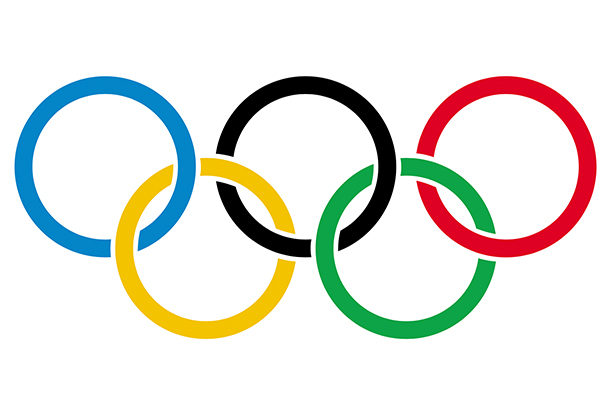Photo: Pixabay

Human Rights Council membership | A call for responsible voting
By Nicolas Agostini, Representative to the United Nations, DefendDefenders. The world’s top human rights body needs members with a genuine commitment to protecting human rights. Electing States should ensure that candidates with a record of systematically violating rights and failing to cooperate with the Council receive no support in the ballot.
Last month, DefendDefenders (the East and Horn of Africa Human Rights Defenders Project) published a report scrutinising Burundi’s behaviour as a member of the UN Human Rights Council. Throughout its tenure, the Burundian government set new lows for a Council member. Its human rights record, refusal to cooperate with Council mechanisms, and attacks against the UN system confirmed that Burundi should never have been elected to the UN’s top human rights body.
Regrettably, some States are elected despite grave violations of Council membership standards.[1]Together with civil society partners, we have identified ‘clean slates’ (uncontested elections) as one of the main issues with regard to the quality of Council’s members. We have also repeatedly called on States not to cast their vote for candidates that are unfit.
Eritrea’s candidacy
As the next Council election is looming, Eritrea has declared its candidacy for a three-year term (2019-2021). The African Group, like many other regional groups, is likely to present a ‘clean slate’ again.
In 2016, the Commission of Inquiry (COI) on Eritrea found reasonable grounds to believe that crimes against humanity – including enslavement, imprisonment, enforced disappearances, torture, other inhumane acts, persecution, rape and murder – had been committed in the country since 1991. In her last report to the Council, the Special Rapporteur on Eritrea, Sheila B. Keetharuth, concluded that ‘Eritrea has shown that victims of crimes against humanity and human rights violations are not about to get adequate remedies.’ Her overall assessment of the human rights situation on the ground remained ‘grim, with no meaningful progress to address specific […] violations to report.’
Eritrea has consistently refused to cooperate with the UN human rights system. It has denied access to independent experts and investigators, boycotted debates on its human rights situation, and launched attacks – some of which descended to a personal level and verged on incitement to violence – against human rights defenders, the Special Rapporteur, and COI members. The then-President of the Human Rights Council denounced ‘various threats and acts of intimidation [carried out] in [the COI members’] hotel.’[2]
Few States are more unfit for Council membership than Eritrea. The government flouts the first two criteria set out by paragraph 9 of UNGA resolution 60/251 (namely, that States ‘uphold the highest standards in the promotion and protection of human rights’ and ‘fully cooperate with the Council’). Eritrea might fulfil the last criterion, which is purely technical: being reviewed under the Universal Periodic Review (UPR) during its term. Eritrea’s next UPR will take place on 28 January 2019, but recommendations made during Eritrea’s first two reviews remain largely unimplemented. At the regional level, the African Commission on Human and Peoples’ Rights (ACHPR) issued numerous decisions that have been ignored by the Eritrean Government.
Casting responsible votes
At this point, we should not point fingers at the African Group more than at other regional groups, which tend to present ‘clean slates’ for Council elections.[3]Two months ahead of the next Council election, which will take place in October at the UN General Assembly, we urge electing States – i.e., all UN member States – to act responsibly.
If they allow the Eritrean government to sit on the Council, they will adversely impact not just the Council’s credibility, which is already stained by the presence of some of the worst human rights abusers (including Burundi, Saudi Arabia, China, Venezuela, and Egypt), but also its integrity and its ability to conduct its own work in a consistent way. Eritrea, for example, will be able to vote against scrutiny of its own human rights record.
At an institutional level, electing Eritrea to the world’s top human rights body will amount to giving legitimacy to attacks against the Council’s integrity, as the Eritrean government has routinely engaged in reprisals against human rights defenders and civil society, who play a key role in the Council’s work by providing it with some of the information it needs to fulfil its mandate.
With Eritrea as a member State, the Council will still be able to act on thematic issues and country situations. However, its reputation will suffer at a time when it badly needs to prove its value to the public. And the anti-human rights bloc – States that systematically vote against country-specific initiatives, attack human rights standards, and attempt to undermine the Council’s thematic work – will be strengthened.
Progressive States of all regional groups should now show policy consistency. In October, keeping in mind that the vote is individual and secret, that Council members are elected by simple majority, and that there is no obligation to tick all candidates’ boxes when a regional group presents a clean slate, progressive States should leave the ballot blank for Eritrea.
Going forward, regional groups and their members should ensure that for each election, the number of candidates is larger than the number of vacant seats, so that the process foreseen when the Council was established actually takes place. They should also encourage other regional groups to avoid ‘clean slates’. Lastly, States should vote only for candidates that have a satisfactory record of cooperation with the UN human rights system and genuinely strive to uphold the ‘highest standards in the promotion and protection of human rights’.
[1]See the membership criteria set out in paragraphs 8 and 9 of the Council’s founding resolution, UN General Assembly (UNGA) resolution A/RES/60/251, “Human Rights Council”: www2.ohchr.org/english/bodies/hrcouncil/docs/A.RES.60.251_En.pdf (consulted on 13 August 2018).
[2]Reuters, “Police in Geneva guard U.N. investigators into Eritrea’s human rights after threats,” 24 June 2015, www.reuters.com/article/us-eritrea-un/police-in-geneva-guard-u-n-investigators-into-eritreas-human-rights-after-threats-idUSKBN0P427S20150624 (consulted on 13 August 2018).
